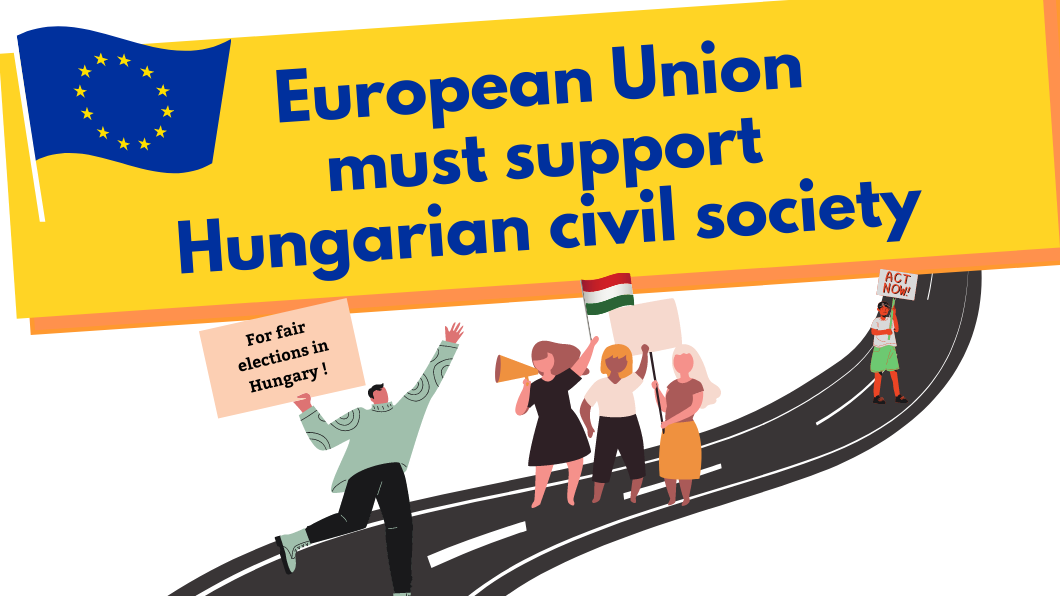

The parliamentary elections in Hungary once again showed that democratic institutions in the country are at risk. International observers from the OSCE Office for Democratic Institutions and Human Rights (ODIHR) and the OSCE Parliamentary Assembly (OSCE PA), as well as the NGO-observers from the European Network of Election Observation Organizations (ENEMO) attested the lack of a level playing field for election contestants and the blurring of lines between the state and the ruling coalition led by Orbans’ Fidesz party. Many key ODIHR recommendations have not been implemented by the Hungarian authorities over the years. The freedom of expression, access to information, freedom of association have been further restricted and the independent judiciary weakened.
The clear advantage of the ruling coalition was secured through an unprecedented level of political control over the media in an EU state, including the state captured public media, which served as a propaganda tool for the ruling party. . The fact that this election campaign was interrupted by the Russian aggression against Ukraine also led to ruling party propaganda about the war dominating the pre-election discourse, which was additionally used to discredit the opposition. According to the OSCE ODIHR, “The bias and lack of balance in monitored news coverage and the absence of debates between major contestants significantly limited the voters’ opportunity to make an informed choice.” The misuse of state resources, the uneven approach towards voters abroad, the lack of transparency and accountability of campaign finances as well as insufficient rules regarding election complaints further affected the fairness of the process.
Furthermore, Hungarian electoral law does not allow domestic civil society organizations to observe the elections, which is at odds with the OSCE commitments and long-standing ODIHR recommendations. According to Despite the increasing restrictions, the recent elections have been accompanied by a significant engagement of Hungarian civil society. Hence, several domestic NGOs conducted diverse awareness raising and voter education campaigns and engaged in so-called street observation to monitor potential cases of organized voting and vote buying outside the polling stations. The Clean Vote (Tiszta Szavazás) program and the Hungarian Civic Liberties Union (HCLU) collected evidence of multiple attempts at electoral fraud on Election Day, facts of illegal transportation of voters, and numerous complaints have been filed concerning potential abuses in polling stations. The EPDE member 20K2022have provided online and offline trainings for precinct election commission members, contributing to the recruitment and training of approx. 20,000 members of the precinct election commissions. Yet others monitored different aspects of the election process and offered legal consultation to the citizen election observer groups despite limited financial and human resources.
The enormous involvement of civil society in defending democratic institutions in Hungary must be supported by the international community. The European Union should work out a model of strategic and long-term financial support for civil society organizations in Hungary in order to ensure their further operability and effectiveness.
At the same time, the European Union should not make further financial support for the government in Hungary available, especially in the framework of the post-pandemic recovery fund, unless progress is made in restoring the rule of law, fair elections, and support for democratic institutions in the country.
Subscribe to our
newsletter
Sign up for our monthly newsletter
and receive the latest EPDE news
Sign up for our monthly newsletter and receive the latest EPDE news
Subscribe to our
newsletter
Sign up for our monthly newsletter
and receive the latest EPDE news
Subscribe to our
newsletter
Sign up for our monthly newsletter and receive the latest EPDE news